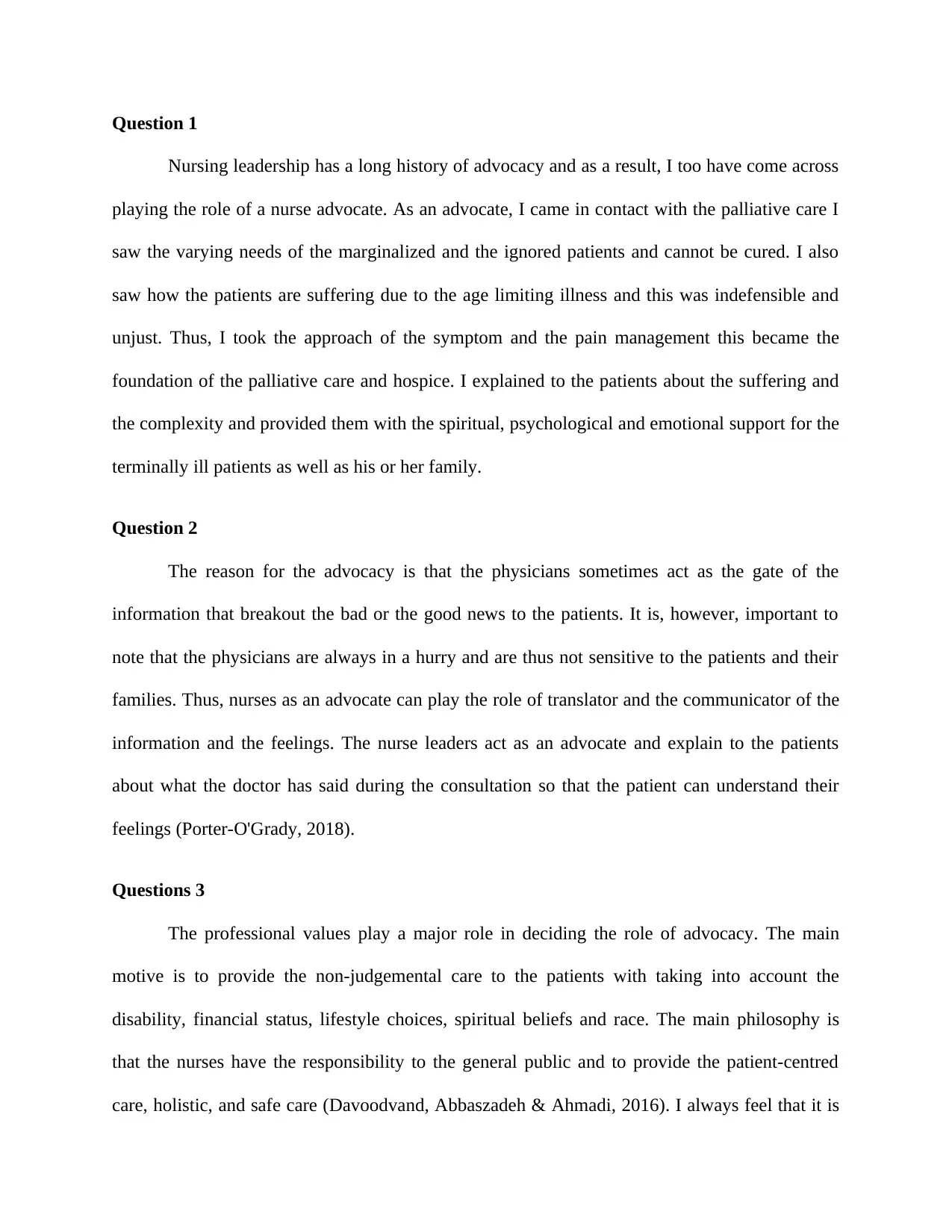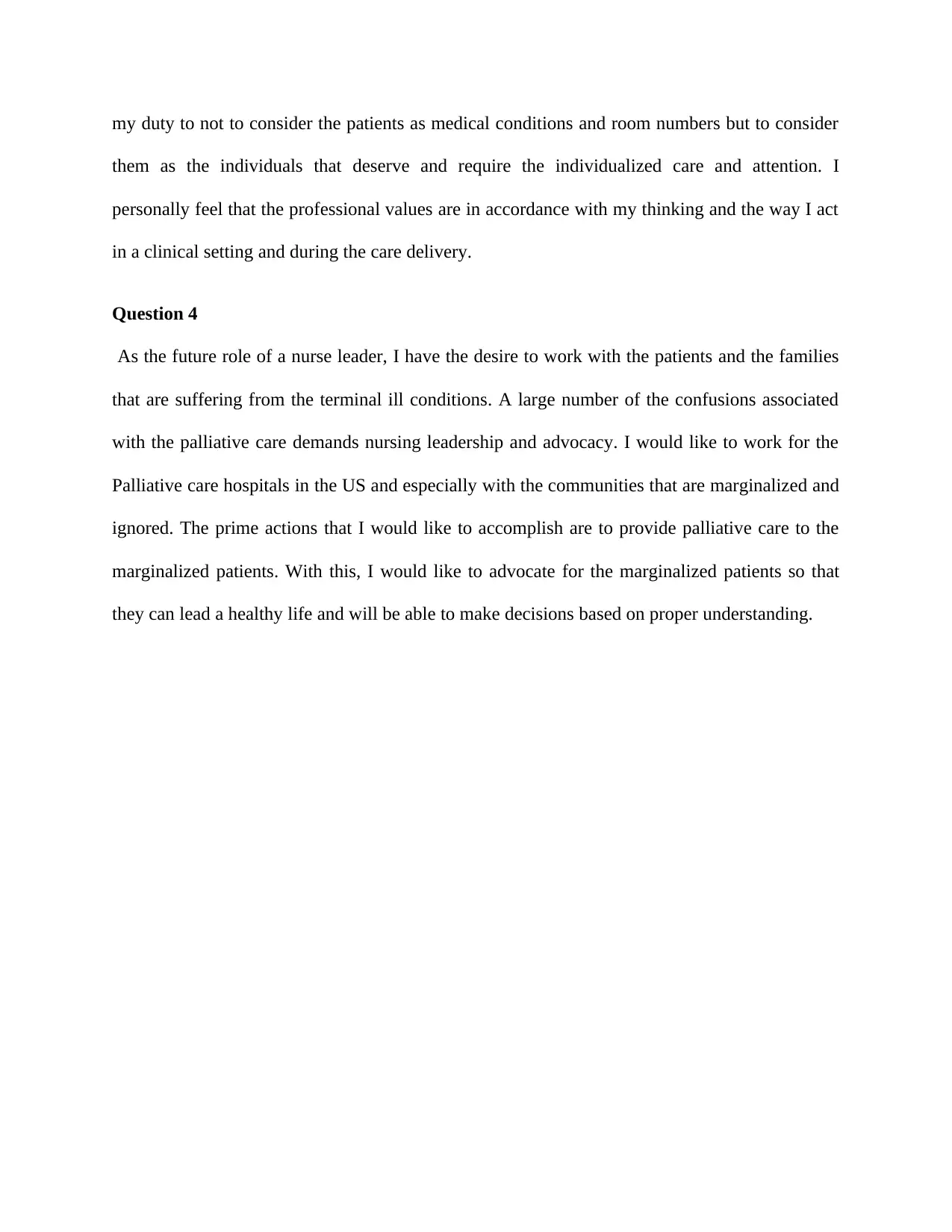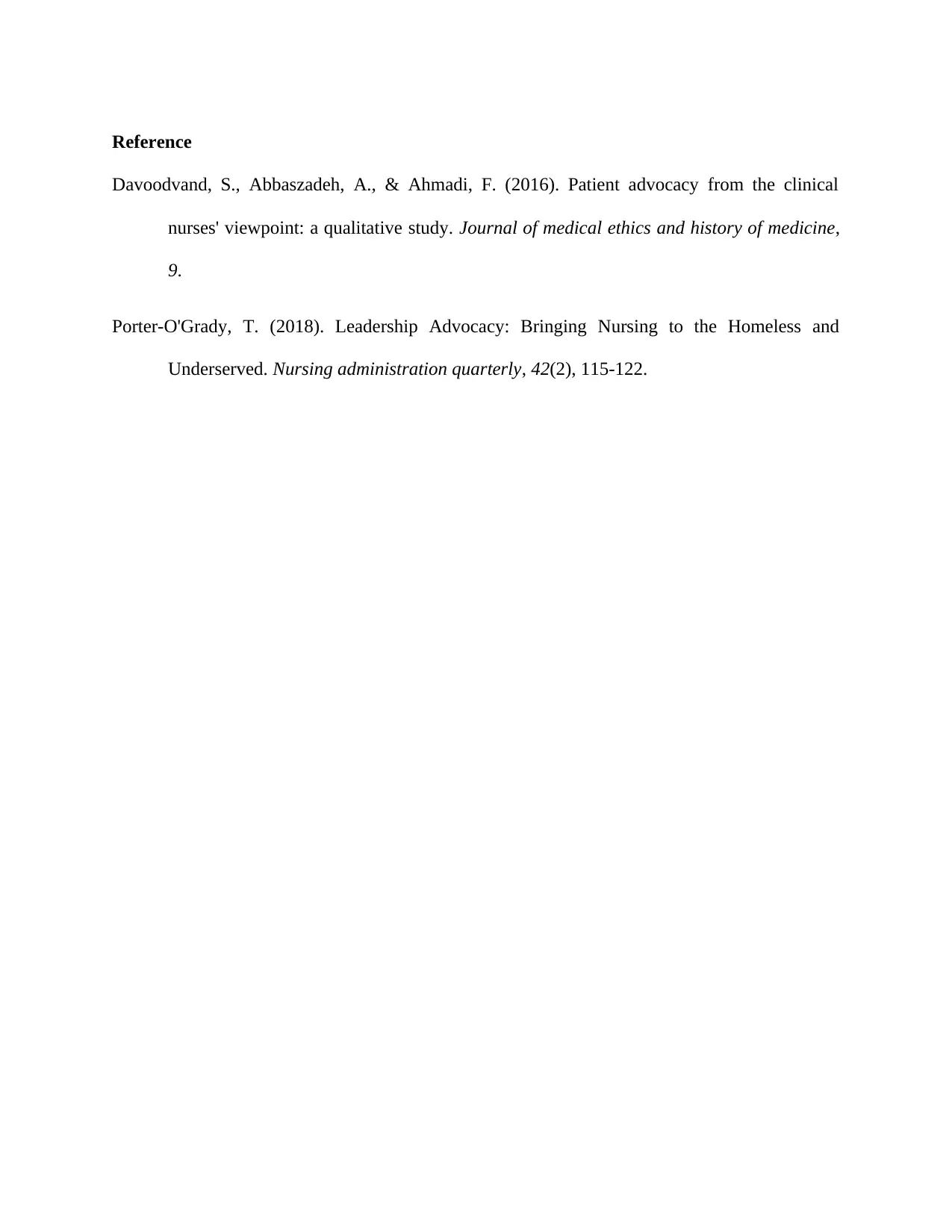Advocacy in Nursing: A Leader's Role in Palliative Care for Patients
VerifiedAdded on 2023/06/11
|4
|615
|407
Essay
AI Summary
This essay explores the role of nursing leadership in advocacy, drawing from personal experiences and professional values. It discusses the importance of nurses acting as advocates, particularly in palliative care settings, where they can bridge the communication gap between physicians and patients and provide comprehensive support to marginalized individuals and their families. The author reflects on the values that drive advocacy, such as providing non-judgmental, patient-centered care, and envisions a future role as a nurse leader working to improve palliative care access for underserved communities, ensuring patients receive the understanding and support needed to make informed decisions about their health.
1 out of 4










![[object Object]](/_next/static/media/star-bottom.7253800d.svg)